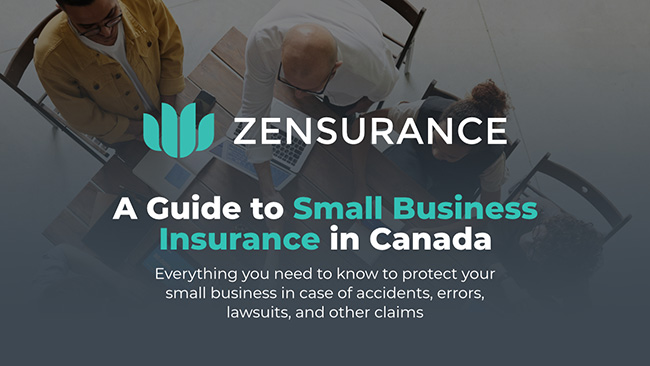It’s not unusual for an independent contractor, skilled tradesperson, or landscaper to accept cash jobs from customers “under the table”.
On the surface, this arrangement seems mutually beneficial – the customer saves money by avoiding taxes, and the contractor can earn cash without reporting it as taxable income.
However, doing off-the-books contractor work poses serious risks that many contractors may not fully consider.
It is known in insurance as a “moral hazard” – a risky situation where a contractor assumes their contractor liability insurance will cover losses, even when working under the table. However, such a scenario may affect a contractor’s insurance policy claim.
Let’s examine the legal, financial, and practical risks involved for both contractors and customers in under-the-table arrangements.

Related Posts
Categories
What Contractors Risk Doing Work Off-the-Books
There are five primary risks contractors face when doing work for a customer off-the-books and accepting being paid covertly in cash:
1. Tax Evasion
Accepting cash without reporting it is illegal and qualifies as tax evasion – a serious offence involving unreported income.
If a contractor is audited and it’s discovered they’ve done so, they can face hefty fines, be ordered to pay back taxes (plus interest), and face criminal prosecution.
Additionally, if a contractor is audited for false reporting or failing to report income and paying taxes by the Canada Revenue Agency (CRA), and the CRA determines that contractor willingly or negligently did so, it can impose a gross negligence penalty.
That penalty could be 50% of the understated tax or the overstated credits (or both) related to a false statement or omission. Once the CRA triggers an audit of this type, the contractor may face prolonged financial monitoring.
2. No Legal Protection
If a customer refuses to pay a contractor after work is completed on a cash job done under the table, the contractor has no legal recourse.
For instance, if a contractor has legal expense insurance within their business policy, they cannot use it to recover debts from under-the-table jobs. This insurance covers the costs associated with legal debt recovery.
3. Business License Suspension
It’s possible the authorities could suspend a contractor’s business license for participating in tax evasion.
If a business or skilled tradesperson’s service provider or business license is suspended, they are unable to operate legally and cannot receive direct payments from customers.
4. No Liability Insurance
While accepting cash payments isn’t inherently illegal, not charging taxes and failing to report this income can invalidate a contractor’s liability insurance.
That means if a contractor needs to file a claim for project damage or property loss, their contractor liability insurance may be void if the work was done off the books.
Furthermore, failing to report under-the-table income can negatively impact business interruption insurance claims. An insurer may issue a lower payout if financial records don’t reflect unreported income.
5. Damaged Reputation
A contractor’s reputation – and ability to secure business financing or future contracts – can be damaged if convicted of contractor tax evasion.
If a contractor or business is convicted by a court for tax evasion, it becomes public knowledge since court decisions are published online.
That means off-the-books cash payments from customers make it more challenging to secure a business loan and financing, sell a business because of unverified income, attract employees and skilled subcontractors, and possibly new customers.
What Customers Risk Paying for Work Off-the-Books
For customers who willingly engage in paying a contractor cash under the table for services, the risks are similar:
- No legal recourse if there’s a dispute with a contractor. Without a written contract, invoices documenting payment, if a contractor’s work is of poor quality or incomplete, a court of law is unlikely to intervene and enforce a verbal agreement that violates tax laws.
- Fraud. Making a cash payment or deposit without paying taxes for work to a contractor without a contract, receipts, or paper trail may increase the possibility of being defrauded.
- No liability protection. Property owners could be financially responsible for damages if a contractor lacks valid liability insurance for cash jobs or if their insurer denies the claim.
Protect Your Contracting Business: Get Comprehensive Contractor Liability Insurance
Operating legally, paying taxes, and having comprehensive contractor liability insurance are essential for every independent contractor and small business owner.
Zensurance provides customized, low-cost business insurance to hundreds of thousands of Canadian small business owners and independent professionals across hundreds of industries.
Fill out our online application for a free quote and explore your options.
Our knowledgeable team of licensed insurance brokers will shop our partner network of over 50 insurers for the right policy to fit your requirements, tailor it accordingly, and issue a certificate of insurance and policy documents in 48 hours or less.
Recent Posts
11 Expert Tips for Renewing Commercial Auto Insurance in Canada
Is your commercial auto insurance policy up for renewal? These expert tips help Canadian small business owners and independent professionals save money, avoid coverage gaps, and renew their commercial vehicle insurance confidently.
Essential Insurance Policies Every Canadian General Contractor Needs in 2026
General contractors, construction companies, and skilled trades professionals need the right insurance coverage to protect against liability, property damage, and financial loss – especially as construction and renovation season ramps up in 2026.
How Canadian Small Businesses Can Use Artificial Intelligence (AI) to Increase Sales and Revenue
Using AI effectively can help Canadian small businesses attract more customers, increase sales, and improve customer service, often without new hires or large budgets. Many business owners are already using AI without realizing it. This guide explains how to start small, stay focused, and grow results in five practical steps.
Sign Up for ZenMail
"*" indicates required fields









